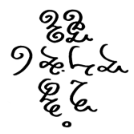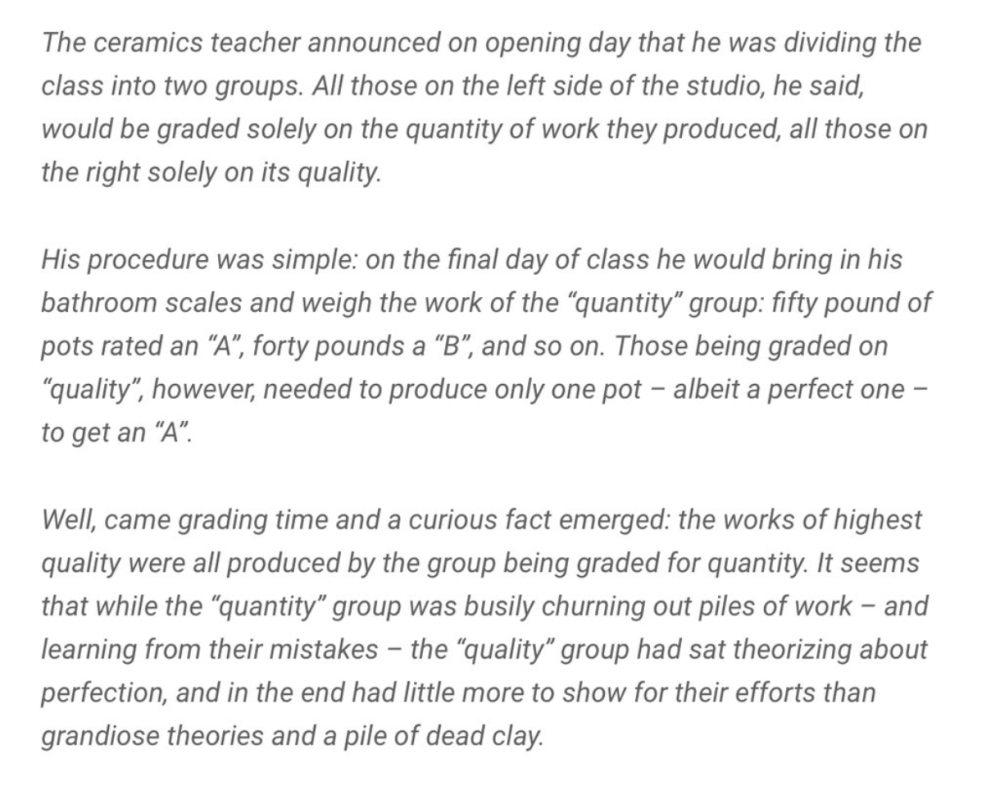All Activity
- Past hour
-
Keiko joined the community
-
Hello! What a great piece! My ensemble would love to perform some of the movements, though we would have to ask to rearrange for a slightly different instrumentation (if the composer is interested and willing!) What’s the best way to contact the composer?
- Today
-
Churchcantor started following Behold, My Servant Shall Prosper
-
Behold, My Servant Shall Prosper Free Sheet Music by Robert C. Fox for Various Instruments | Noteflight And Quam Olim II from Requiem. Requiem In Bb Major-Quam Olim II Free Sheet Music by Robert C. Fox for Various Instruments | Noteflight
-
If I learned about this last year I could have entered 😭
- 2 replies
-
- competiiton
- feedback
-
(and 1 more)
Tagged with:
-
ComposaBoi started following Soliloquy for Organ No. 7
-
This is fascinating to me. You've written at least seven pieces for organ now, and, sorry, but you don't seem to know how to write for the instrument at all. I say this because organ manuals only go down to a C2, so this is literally impossible as written. You could technically reach a sound that low with pedals, but it's never written that way so an organist would be confused how to play it. (edit: and I see now that it's intended for manuals, so yeah, very much impossible to play.) I'm curious about your musical background, because you've written so much music, more than ten times as much as me, but with all your music that I've seen, there seems to be a complete lack of understanding compositional techniques or even fundamental music theory. I don't mean this to offend you in any way either, and I'm sorry if it does. Clearly, what you write fulfills its purpose for you, and that's all that really matters, but it still is very interesting to me. The only real take away is that if you want a piece to be performed, make sure you study the instrument thoroughly first.
-
Based on the same core concept as the last two canons, this one took roughly under four hours to complete (as time seems to fly once I finally get inspired) and is intended to incapsulate the essential technique employed in these more recent compositions with a greater measure of brevity and conciseness involved, for perhaps three minutes of the same nonstop iterations (as was the case in the previous one) may have turned out quite a bit too repetitive, I regret. YouTube video link: https://www.youtube.com/shorts/-tV8AZFpbmQ
-
- 1
-

-
rmchaffee started following 13th Annual MusicTeacherGifts.com Youth Composition Competition
-
13th Annual MusicTeacherGifts.com Youth Composition Competition for students ages 10 through 18 (or 19 if still in high school). Compositions due Feb. 14, 2026. Winners chosen by April 15, 2026. Any instrumentation is entertained. Few restrictions. Feedback for every entry from two judges. Three age groups are divided for judging purposes: 10 through 14, 15 and 16; and 17 and 18 (19 if still in high school) Two judges give constructive feedback for every student who enters. 1st, 2nd and 3rd prizes for two older groups and 1st and 2nd prizes given for younger group. $40 entry fee is used to give back as student prizes. Ties are given where warranted. Also J. W. Pepper has donated gift certificates for prizes. Ages 17-18 (or pre-college): First place: $150, Second Place: $50 plus $50 gift certificate from J. W. Pepper, Third Place: $50 Ages 15-16: First Prize $100,2nd Place: $25 plus $50 Gift Certificate from J. W. Pepper, 3rd place: $25 Plus $25 Gift Certificate from J. W. Pepper Ages 10 - 14: First Place: $25 plus $25 gift Certificate from J. W. Pepper, 2nd Place: $25
- 2 replies
-
- 1
-

-
- competiiton
- feedback
-
(and 1 more)
Tagged with:
-
PeterthePapercomPoser started following Orchestration of Dvorak's Five Bagatelles
-
Alex Weidmann started following Orchestration of Dvorak's Five Bagatelles
-
Hi to all. This is my latest orchestration, and it's been my most challenging by far! Still needs loads of work on the enharmonic spelling, as I used a midi file as my original source. Also need to add more slurs, etc... I'm guessing the flutes and oboes would struggle to play this? Probably not giving them enough time to breathe? Thinking I may need to use brass and percussion more often, and perhaps less woodwind? Obviously some of my score features are designed for midi playback, and not suitable for a conductor's score (e.g. long hairpins under multi-bar rests). Quite pleased with the rendition though. I spent a lot of time balancing it. The midi I used was the version for two pianos: so it has some differences with Dvorak's original arrangement for strings and harmonium. I decided to leave these in place, as I think they suit the orchestral setting better than the original melodic lines. Anyway, hope you enjoy!
-
Yet another orchestration of a Ravel Menuet!
Alex Weidmann replied to Alex Weidmann's topic in Orchestral and Large Ensemble
Thanks Peter and Mark! This one has been orchestrated before apparently; but it's one of Ravel's more obscure piano works: so not widely known. -
Yet another orchestration of a Ravel Menuet!
MJFOBOE replied to Alex Weidmann's topic in Orchestral and Large Ensemble
A very nicely shaped presentation ... well balanced and lovely orchestration. Mark - Yesterday
-
This is my Soliloquy for Organ No. 7. Like my soliloquies for organ No.s 2-6 and my two sets of sententiae for organ, it is composed for manuals only.
-
Hi @Fruit hunter! What a monumentally huge work! It's full of pomp and often very menacing and dark, but it's also not without its bright spots. I like your use of scoops/bends in the piece. I understand that in order to get Musescore 4 to perform those satisfactorily you had to use guitar notation? I'm interested in using the effect. I actually listened to your piece while reading a chapter from a PDF book on my laptop. Otherwise, I would probably not have had the patience to sit through a 40 minute work! LoL I love the dramatic tutti orchestral hits with what sounds to be an anvil accompanying (although I don't see it in the score at the beginning - I assume one of the percussionists must have switched instruments?). Nice ending! Quite an unusual progression of chords before the final bang! It sounds very incidental in many spots, often playing the role of background music for the scene you described being played out in the foreground (I presume). Did you come up with the story and characters yourself? You're quite the creative mastermind if so! Thanks for sharing!
-
Forgot to add, here's a couple of things that changed from the original; 1. Original main key was F# Minor - Current key is Eb Minor (1.5 steps lower to enrich the lower registers) 2. Ensured that nuances in the rhythm were more accentuated where needed (For example, at m. 108, where the motif rhythm changes to half note, half rest, then completes the phrase again, I've, rather than having only the melody instruments doing that rhythm, have made the entire ensemble follow suit) 3. completed a large amount of audio re-mastering with the playback to balance the ensemble better 4. Multiple areas have been re-done in regards to placing emphasis on melody, changing voices in harmonies, and more. Off the top of my head, that's what I remember altering in the score. I know that I did more, but can't remember every change, at this time.
-
.thumb.png.8b5b433a341551e913a34392660bc95b.png)
ACO's Second Album
PeterthePapercomPoser replied to AngelCityOutlaw's topic in Incidental Music and Soundtracks
Hey @AngelCityOutlaw! My ranking of these tracks from my favorite to least favorite is this: The title track - Fortune & Thrill Seekers Sleepless in Shangri-La Tropical Punch Kali Yuga I think Fortune & Thrill Seekers and Sleepless in Shangri-La seem to me to be the most melodically defined and lyrical. Tropical Punch is melodious but in a more simplistic way while Kali Yuga seems to me to be the least well defined melodically. Great job though, overall! I really enjoyed listening to these! Thanks for sharing. -
Hey @Alex Weidmann! Beautiful job once again! I love the way you scored the rich harmonies of this menuet. The format of starting with the woodwinds, switching to the strings, then to the brass, then combining all the forces together was a really great choice that brought much body to your orchestration! Great job and thanks for sharing!
-
I appreciate the reminder that perfection shouldn't be the goal. I often find myself going back to improve on things where I'm told that I should, when given feedback on some of my work. I went ahead and pull the files for the original score to add here as a reference, should you feel you'd like to re-visit that version, as it's no longer available on the previous post. 🙂 The_Hallowed_Knights_Journey_-_UncleRed99__Kyle_Hilton.mp3 The_Hallowed_Knights_Journey_-_UncleRed99__Kyle_Hilton.pdf
-

"Turmoil" for Brass Quintet | Kyle Hilton (UncleRed99)
UncleRed99 replied to UncleRed99's topic in Chamber Music
I appreciate the insight, Peter! I'll keep this in mind moving forward 🙂 -
Tractor Kharido joined the community
-
Hi @Nico_ and welcome to the forum! I think this is a pretty nice Baroque-styled invention! I don't see/hear anything about it that resembles VGM or SNES music? But it does make me question your intent with this music. To me it is very clearly pre-classical music rather than music meant as a background to a video game level or media music. I think the piece is coming along quite nicely in those terms! Keep going and thanks for sharing!
-
Hello @Isen Lark and welcome to the forum! Your video has a high production value both visually and aurally! The music is very emotional, although sometimes it strays close to cliche when the bass notes in each measure always move down by step as in the famous Lament bass. Like Henry said, it would enrich the music if you modulated, or possibly if you used more inversions or unusual harmonies with foreign bass notes. Like, I like to sometimes have a chord with a bass note underneath that's not the root, 3rd nor 5th or the chord but something more unusual like the 7th, 9th or 11th. That kind of approach to harmony can really bring some unusual sonorities into your music! Thanks for sharing this enjoyable piece!
- 2 replies
-
- cinematic
- cinematic music
-
(and 1 more)
Tagged with:
-
Hey @UncleRed99! I know I've heard and reviewed this piece before, but being only a casual listener from the sidelines, I can't tell what differences or improvements you might have made. Nor can I tell if the improvements actually improve my listening experience or possibly, if they detract from it. I feel like delving deeply into the score and searching for the differences would be an endeavor that would require quite a bit more effort on my part (seeing as how I'd have to compare it to the original or however many previous versions of this piece you've made before this). It's the law of diminishing returns in music. In addition, I thought I'd share a pertinent parable about art in general that I think might be applicable or at least hopefully helpful to you: (from the book "Art & Fear: Observations On the Perils (and Rewards) of Artmaking") I find that this parable really helps me in my approach to composition and work ethic in general. I try to apply any lessons I learn to new pieces and to churn out a greater quantity of work with the confidence that the things I learn from previous works will manifest themselves in future works. I also recognize that trying to perfect old pieces with endless reworks would not be conducive to improving. In terms of time management, I believe my time is spent much more wisely writing new pieces. I don't know if any of that hits home for you or not. But I thought I'd at least share my own reflections on the subject and hope that that could be helpful for you in some way. If you disagree with my work ethic or with the parable, that's fine too. Thanks for sharing!
- Last week
-
Schumann orchestration (Child Falling Asleep)
Alex Weidmann replied to Alex Weidmann's topic in Orchestral and Large Ensemble
Thanks Mark. May give that a try. -
.thumb.png.f5c7c1a6a554eeeefdce321d089f5901.png)
A bit off... (best song I've ever made)
therealAJGS replied to therealAJGS's topic in Incidental Music and Soundtracks
-
Schumann orchestration (Child Falling Asleep)
MJFOBOE replied to Alex Weidmann's topic in Orchestral and Large Ensemble
Hi Alex .... I know getting the full resonance of a piano in an orchestration is a real challenge. I have to say that I do miss the warm lower voices. The upper woodwinds in the beginning (for me) need some warmth underneath (maybe from the lower strings). Mark -
Never before orchestrated Prelude by Ravel
Alex Weidmann replied to Alex Weidmann's topic in Orchestral and Large Ensemble
Thanks Peter and Mark! Just hope I can get it performed somehow. I'm working on Dvorak's Five Bagatelles for my next orchestration (which is proving a bit of a nightmare!)







